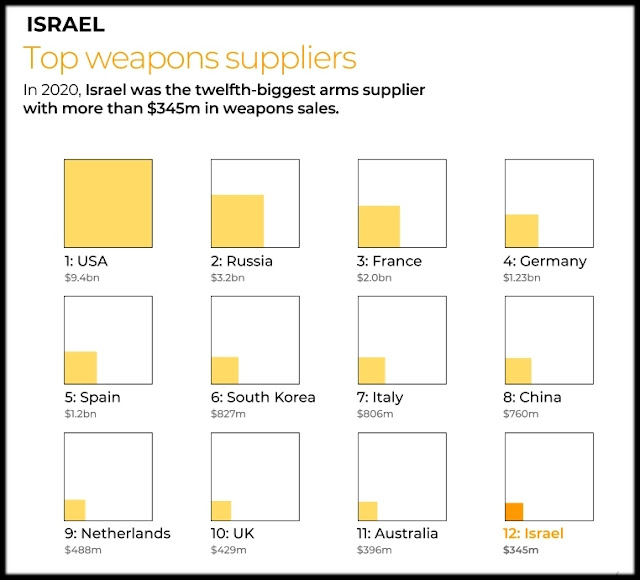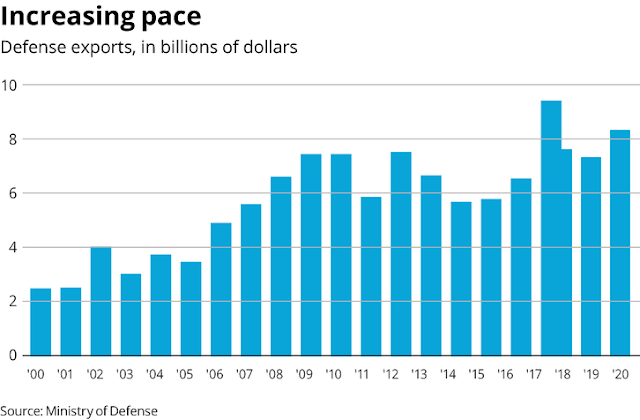The Elbit 3 Victory last week should be the beginning not the end of the campaign to end British military collaboration with Israeli ’s Apartheid regime
Israel exports arms that endanger human rights because it serves us, top defense official admits

Last week the first trial of Palestine Action activists trying to close down Elbit arms factories in Britain ended with the acquittal of all 3 activists. This is the first of a series of such trials. Unlike the defendants at Newcastle, those on trial will be able to appeal to juries and argue that the very existence of such companies, dedicated as they are to the murder and maiming of civilians, is contrary to both British and International Law. Below is a summary of the main points of law that led to the acquittals by John Nicholson, a former barrister and himself a Palestine solidarity activist.

In January three activists threw bottles of red paint and locked themselves across the entrance gates, closing down UAV Systems in Shenstone as part of Palestine Action’s campaign against Elbit Systems. UAV is a subsidiary of Elbit which manufactures drones used against Palestinians in the occupied territories.

Eleven months later, they appeared at Newcastle-Under-Lyme magistrates court accused of committing criminal damage. On Monday, at the end of a two-day trial, Judge Waites found them not guilty.
For nearly 18 months there have been a series of sustained protests at many of Elbit’s offices and factories around the country which police claim have caused a total of around £15 million of damage. While activists gave evidence in open court the Elbit witness gave their evidence hidden behind a screen.

The Judge ruled that the Crown Prosecution Service had not proved that convicting the defendants would be proportionate to their right to protest, adding that Palestine and the arms trade were important issues and the activists had specifically targeted the drone manufacturer in accordance with their strongly-held beliefs.
UK police have offered 24 hour rapid-response at Elbit sites and have regularly raided and arrested activists in an attempt to disrupt the campaign. See UK’s Palestine Action wins Israel protest court battle. This contrasts with their virtual decriminalisation of rape as they plead ‘lack of resources’.

Legal Summary
The judge found that:
1. This was an important issue. Palestine and the arms trade were serious concerns. In Ziegler the Supreme Court said that the court cannot judge on the merit of the protest, but the right to protest is important and this particular protest was on serious and important issues.
2. The defendants believed in what they were doing. Defendants’ views came across clearly (time in Palestine, campaigning and friendship with a Palestinian family [most of whom had been killed by a drone attack]) and they were serious people who were strongly motivated.
3. The location was deliberately chosen – UAV Engines. There were a number of aims, educating, stopping production, symbolic blood, all linked to the location.
4. The duration was limited. 7 hours (4.30-11.30 am). One gate. The second part of the protest was not said to be criminal, the CPS only charged on criminal damage, throwing the red paint and although it was not just the time taken to throw the paint (a few minutes) but the time to clear it up, the fact that Elbit took two days and charged £900 was not realistic. It was just that they hadn’t got round to it – really it was an hour or so as only 5-6 car parking spaces were affected.
5. The disruption was limited. And there was no evidence the paint/bottles went near the dog handler or his dog. He gave evidence that he felt “not happy” but made it clear that there was no violence. There was no especial trauma caused to him. The CPS mentioned private houses opposite – but there was no evidence that anyone was upset. They might have been out or even sympathetic. The nature of the area was otherwise commercial. Extent of obstruction was broken glass, limited to a few bottles, not all were broken, and one of the defendants graphically described how it was swept up! No obstruction to members of the public.
6. No danger to public order. It could have been different if it had been during the day.
The judge then summarised – important issues, limited duration, focused on objectives, limited impact on workers or public, no significant danger. They did however commit a criminal offence. But… the legal authorities make clear that judgment requires more than just consideration of blocking the highways (Ziegler). There is also Articles 10 and 11 of the European Convention on Human Rights (ECHR) and that this could include cases involving criminal damage (one such included red paint on a statue). The degree of damage is part of the balancing act – at one end cutting off a petal, at the other bulldozing a building. This was in between. Symbolic use of paint (not disputed it was water based and washed off easily – if it had been done more quickly by Elbit that is). It was at the upper end of the scale of proportionality and the judge was therefore not sure that the interference (by the CPS) with the right to protest was justified. Not guilty!!
The Judge emphasised that there are consequences to this. It is not a precedent (i.e. don’t do it again and expect to get away with it and don’t expect other cases to be able to say “we won here so we can win again”). Every case depends on the individual facts.
This was a legal judgment based on Ziegler, the Supreme Court case (which is binding on all courts). Ziegler is about proportionality, which the court agreed is not limited to blocking the roads. This was much more likely to succeed than other defences (which were also put), such as necessity, because the action taken here may not so easily be linked to the desired outcome there, that is, it may not be effective enough to stop bombing of Gaza and the link between the two may be too remote.
The judge was absolutely insistent that this was not a precedent. Legally that is correct. The barristers made clear that the judge could and should find in our favour here, irrespective of any other possible future cases. One of the defendants made it pretty clear that she would be going back to protest every day she could – and that everyone in the court had a moral duty to go and do the same! So the judge was trying to say we can’t do that and expect to get away with it. But – in all human and political terms – this is a precedent. If we had lost, the CPS would be using it the other way. Maybe (just maybe) the CPS will have to rethink some of the other charges in the light of this.

The CPS didn’t charge for anything other than throwing the red paint (and criminal damage resulting). This meant they artificially separated the aspects of the action, and the defendants did well to say that all of the bits of the action were part and parcel of the one action. It did not seem to be clear to the judge why the CPS didn’t go for other charges, such as preventing workers going to work or other trade union related “offences”. I think that all the other PA protesters have had charges dropped when they just blocked the road or locked on, while this one was “lock-on plus”, ie they threw red paint (soluble, symbolic, red paint to represent the blood of the Palestinians killed by Elbit). So the CPS fought this on the “plus”. [Doesn’t anyone know about the suffragists??]
There is a tension between our arguments – on the one hand the actions do aim to maximise the stopping of production at Elbit and/or damage; on the other hand, in court our arguments are that it was limited and didn’t do very much. No way of getting round this, other than the more “political” defences of necessity and crime prevention. Elbit’s crime is far worse than ours, international law is on our side etc.
Support in the court is essential. It hopefully did help the defendants, to feel they had an audience, and they were very well prepared and “performed” brilliantly. END

Israel – A Military With A State
In 2020 Israel spent $22bn on its military, $2,508 per capita and some 12% of total government spending. This is the highest in the world.
Compare this to Israel’s treatment of its holocaust survivors. When it comes to defending Israeli apartheid Israel’s propagandists never fail to use the holocaust as a justification for Israel’s crimes. Yet what is the reality of Israel’s treatment of the survivors?
According to the Times of Israel over half of Israel’s holocaust survivors require food handouts, ‘with many saying they don’t have the funds to pay for essentials such as eyeglasses and hearing aids’.

In a poll conducted by the Holocaust Survivors’ Welfare Fund, 51% said they relied on food given to them by various charities, with a third saying they were in “dire need” of assistance.
According to the poll, many Holocaust survivors say they are forced to give up essentials in order to have enough money for food. Forty-three percent of respondents said they didn’t have enough money for spectacles, 33% said they couldn’t afford dental care and 27% said they couldn’t pay for hearing aids.
The reality is that the holocaust survivors have subsidised the Israeli state ever since its foundation. The reparations that Germany paid to Israel did not go to the survivors but to the Israeli state and the Jewish Claims Conference, where much of it was embezzled away.
But if Israel is generous to its military and arms industry it is parsimonious to those who survived the holocaust. Below is a graph of Israeli spending compared to other countries.
Israel is a key global supplier of advanced weaponry, including drones, missiles, radar technology and other systems. In 2020, it was the 12th-biggest arms supplier with more than $345m in weapons sales to 16 countries, according to the SIPRI database.
See Infographic: What you need to know about Israel’s military

Israel exports arms that endanger human rights because it serves us, top defense official admits
Top defense official at the event: ‘We should have defended NSO rather than caving to the Americans’
Avi Bar-Eli Dec. 7, 2021 11:46 AM
It’s been nearly five months since the last scandal involving the cyber offense firm NSO Group. In the time since, it has become abundantly clear that it was one scandal too many.

An international inquiry has produced a long list of journalists, social activists and politicians, including VIPs, all of whom were ostensibly targeted by NSO’s Pegasus software. At the top of the list is French President Emmanuel Macron.
‘If we did not collaborate with this or the other dictatorial regime we would not have the defense that we do have’
The list also sheds light on the states that are evidently in possession of Pegasus, and its suspicious correspondence with the states that Israel’s government has identified as geopolitical targets. From there, it’s a short road to the assertion that not only does NSO have a light trigger finger when it comes to providing services to controversial regimes around the world, but that Pegasus virtually serves as a down payment on the establishment of unofficial diplomatic relations between these countries and Israel. These revelations led to a procession of apologies and clarifications from high-ranking Israelis.
These efforts did nothing to keep the United States from placing NSO on a blacklist – a death blow to the company. Moreover, on Saturday Reuters published a report claiming that the mobile devices of at least nine U.S. State Department serving in Africa were hacked using Pegasus, driving a final nail into the company’s coffin.

Throughout this entire period, official Israeli sources have failed to offer any response to the NSO affair, even when the debate focused on theoretical issues, such as the role of Israeli defense exports in a changing world.
Given all this, interest ran high when Eli Pinko – who had been the first director of the Defense Export Control Agency, appointed in 2006 – addressed a closed conference at a Ramat Gan law firm last week dealing with Israeli defense exports. According to materials obtained by The Marker, Pinko didn’t disappoint the attendees, who were drawn from the ranks of the defense export industry.
“The Defense Ministry should have come out in defense of NSO,” Pinko said, “rather than caving to the Americans and the French and sending [Defense Minister Benny Gantz to France] to explain what did and didn’t happen.” As such, Pinko was expressing the prevailing mood in the ministry, even though he is no longer a civil servant.
“Did NSO receive a license? Were they working in accordance with that license? If so, then defend them!” Pinko admonished the audience.
‘Those arrogant Israelis’
Behind closed doors, NSO is claiming that their sales received government approval. The company has appealed to the Foreign Ministry and the Prime Minister’s Office with a plea for help. At the gathering in Ramat Gan, the company’s narrative was practically taken for granted.
“This whole ordeal is a match-up between the U.S. National Security Agency and NSO,” one participant said, insinuating that NSO had “stepped on the toes” of the NSA. “Those arrogant Israelis eliminated the technological edge that the Americans had been building up over 20 years, ever since 9/11 – and began selling this know-how to every good-for-nothing leader in Africa,” he explained. “I’m convinced that NSO has no idea why they ended up on the list over anyone else,” another participant said.

The gathering was held at the offices of the Meitar law firm. Along with the Association of Corporate Counsel, the meeting was chaired by Yuval Sasson, a partner at Meitar and one of the most senior attorneys in the world of defense exports. The audience included the legal counsels of Israeli defense contractors. Through his questions, Sasson adeptly zeroed in on the state of distress his colleagues find themselves in.
“Everyone in this room has fielded a request of some sort from a state agency, or someone serving a state agency. Doesn’t that imply some obligation toward us?” Sasson wondered aloud.
“If a company that has aided a state agency, as a result of that action, finds itself on the American watch list – or is hit with a civil suit in Europe – isn’t the State of Israel obligated to stand by its side, to protect it, to handle the situation?”
Pinko responded authoritatively: “There are quite a few examples of times Israel stood behind companies and these sort of activities – not only through legal defense, but even by paying fees that the defense contractors were compelled to pay in the face of various sanctions – without asking for repayment.”
“In Turkey, for example, Israel defended the interests of two large Israeli companies,” Pinko recalled (possibly referring to the canceled export permits of Elbit and Israel Aerospace Industries in 2011, which caused the loss of contracts with the Turkish air force valued at $140 million).
“What we have here is a matter of reasonable expectations,” Sasson contended, likening the situation to the approval of a prospectus by the Israel Securities Authority. “Anyone working in a regulated area, assuming he abides by the regulations, can reasonably expect that if he suffers damages as a result of those activities, then the state should enter the fray and not shirk its responsibility.”

The conference was called “Considerations of Ethics, Morality and Human Rights in Defense Exports.” An oxymoron, one might say. On the other hand, it indicates the increasingly critical global discourse regarding defense exports and the increasing accessibility to no-less-dangerous technological weaponry.
“Are weapons exports ethical at all? If you’re asking in a utopian world, then the answer is no,” Pinko said. “But we live in a different reality – globally and regionally.”
In his view, the Defense Ministry’s behavior as it pertains to the protection of human rights – vis-a-vis serving the political interests of Israel – is “complex,” but with a clear inference as to which way the balance should skew.
“Human rights [in the target countries of the exports] are on the agenda – both at the Defense Export Control Agency and the Foreign Ministry – but rights do not always take top billing,” he admitted. “There are state interests that need to be taken into account, and more than once the decision regarding the dilemma has been left to the highest political echelons,” said Pinko.
“The defense of the state depends on many systems. If we did not collaborate with this or the other dictatorial regime we would not have the defense that we do have,” said Pinko, likely hinting at the useful relationships that Israel has developed with Iran’s neighbor Saudi Arabia, the United Arab Emirates and Azerbaijan.

According to foreign reports, these relations include the export of sensitive weaponry in exchange for an additional layer of protection for Israel. As such, based on the most recent report by the Stockholm International Peace Research Institute, Israel is the source of 70 percent of Azerbaijani weapons imports.
“We are facing a unique situation. Nothing will change that. There is no other possibility. Take this into account: It’s either the civil rights in some country or Israel’s right to exist. I would like to see each of you face this dilemma and say: ‘No, we will champion human rights in the other country.’ Gentlemen, it doesn’t work.”
“If we were Sweden or France, perhaps we’d be in a different position, but take, for example, the recent incident in Turkey,” Pinko said, referring to the arrest of Mordi and Natalie Oknin. “We avoided saying a single word about the involvement of Hamas-Turkey in the recently exposed terror activities in the territories, even though it originated from there – until after the couple was released. So to sit here and spin theories about what should be done and optics – that’s fine, but you constantly have to see the other side of the coin, as well,” Pinko said.
‘Even Merkel offered the Saudis a submarine fleet’
Pinko repeatedly expressed his contentions regarding the world’s double standard and hypocrisy in its attitude toward Israel.
“I have yet to see publications referencing American attacks in Afghanistan where women and children were killed, nor any reference to massacres committed by French forces in Africa. The world accepts those incidents with equanimity. But when it comes to NSO, which sold a system in accordance with government permits? Suddenly there’s a global outcry. Guys, this is the duplicitous nature of the world.”
“The French company Thales is the number one exporter of cyber technology in Europe. Who don’t they sell to? Just name it, they’re already there. Places we wouldn’t dare touch. So they have an ethical code, or so they say. Very nice,” Pinko said.
“The only state that upholds the human rights issue is Germany. Germany will not sell to Saudi Arabia or other such countries, out of considerations of human rights and the character of the regime in these countries. But still, that didn’t prevent [German Chancellor Angela] Merkel from offering the Saudis a fleet of submarines. The fact that they didn’t buy it is a different matter, but the world is hypocritical.”
Pinko further demonstrated his point, referring to Microsoft’s withdrawal last March from purchasing the Israeli startup AnyVision (now called Oosto). AnyVision developed facial-recognition tracking technology. According to reports in foreign media outlets, Israeli security forces have made use of this system to surveil Palestinians. “Pressure from the Palestinian lobby on the Democratic Party is what stopped the sale,” said Pinko. “Microsoft did not withdraw because it did not want the company. It wanted it. But at the same time it was under pressure.”
Pinko insinuated that some of the negative publicity surrounding the Israeli industry results from commercial competition in the export markets among three blocs: the United States, Europe and China. As such, he alluded to another role for the Defense Ministry as a sales agent of the local defense industry.

“The regimes in Beijing and Moscow have not changed, and will not change. Wherever we exit, they will enter, and wherever the Americans and the French exit, they will enter,” Pinko said. “Does that still mean that we should leave? I’m conflicted. What is certain is that we have to be more deliberate and to do a better job of taking these things into account.”
Pinko, it should be noted, bears the scars of the drones that Israel sold to China in the 1990s, provoking American ire. In general, regarding recent U.S. pressure on its allies to cut commercial ties with China, Pinko was critical of the Israeli course of action: “Being in the middle of the West’s demands and what the Asian bloc is doing is a very difficult task. The regime is proceeding cautiously, and trying to cover its ass. Nowadays, there’s no imagination, there’s no long term vision. It’s all short term.”
‘You’re alone in the fray’
New European Union regulations that took effect in September require that human rights be considered in all defense export transactions. Meanwhile, in early November, the United States released a draft of its own regulations for preliminary public discussion. These included specific supervision of cyber exports.
The rules of the game are changing, all of the speakers at the session agreed. Legal threats are not the only new factor under consideration when export companies make more vigorous efforts to assess whether a sale is worthwhile.
“Investments in problematic places bring bad PR,” noted Sasson. “People want to work in companies with a good reputation, and some companies are having a hard time recruiting personnel due to the publicity about their actions.”
None other than lawyer Eitay Mack was asked to give his seal of approval at the gathering. Mack is one of the most prominent individuals in the human rights niche. In recent years, he has (voluntarily) taken it upon himself to engage in public supervision of Israel’s defense exports.
“You’ve been left alone in the fray,” Mack informed the legal counsels of the defense contractors. “It seems to me, that even though you’re inundated by the bureaucracy of the defense and foreign ministries, at the end of the day, they’re incapable of defending you. The Defense Export Control Agency is not an insurance policy either. Obtaining a permit from them isn’t like getting approval from the U.S. Food and Drug Administration.”
Mack did not spare his criticism for Israeli administration officials. The Foreign Ministry, he contended, has been caught making mistakes more than once and “doesn’t always know what is going on.” The Defense Ministry consistently foils parliamentary supervision of defense exports out of its fear of leaks.
The two ministries, Mack contends, oppose amending the Defense Export Control Law, as it would impose restrictions on the export of arms – even to countries that are not subject to UN Security Council embargo. He no longer holds out much hope for the courts either.

The High Court of Justice recently ruled that public criticism of the Defense Export Control Agency decisions is inadmissible to the court (Mack: “That track has ended, which I feel very sorry about.”) Ultimately, Mack says, after the government refused to recognize its obligation to the defense contractors, the Knesset and the courts followed suit. “From here on out, the responsibility you bear has grown very heavy,” he told his colleagues, “even before you get into questions of ethics.”
Sasson posed a scenario to Mack.
“Let’s say I sold a rifle. I told the customer that he must not enter opposition territory with it. But what can I do? A few months later, you see five soldiers entering a village and massacring people with my rifle. What can I do? Sue my customer? What am I expected to do, aside from not selling to him anymore?”
Mack responded:
“When you’re talking about low-tech, there isn’t really much you can do. Even when Israel decided to stop exports – it couldn’t simply round up the weapons. But when it comes to high-tech technologies, such a possibility must exist. If the exporter has implemented all means of prevention, kept its finger on the trigger and stopped its use at the right moment, then, maybe, it has fulfilled its legal obligation.”
“It is true that the world is hypocritical and politics plays into it, but everyone has to take responsibility for their own square on the chess board. Defense companies have to look after their own interests – and we can all agree that there are enough extreme instances in which the legal counsels are the ones that should be hitting the off switch,”
Mack concluded.
Another speaker at the gathering was Matan Gutman, founder of CybeRighTech, and the advisor to former state comptroller Joseph Shapira. “Each company should look at itself first of all, at its own obligation to loyalty. And at the minimum requirements that it must comply with in order to prepare for a moment of crisis,” he said.
“Even if the company is scrupulous about preliminary actions that will respond [in the event of an entanglement] – that may not be enough, because the world is moving ahead too quickly,” said Gutman.
Pinko concluded the technical discussion of the issue of arms exports – we are, after all, speaking of a professional gathering – with a tip for the defense contractors: “I am familiar with the license granted by the Defense Ministry. If any change needs to be made – it is in the clauses of this license. It is by means of these clauses that the ministry frees itself from all responsibility for the licensing process.”
See: